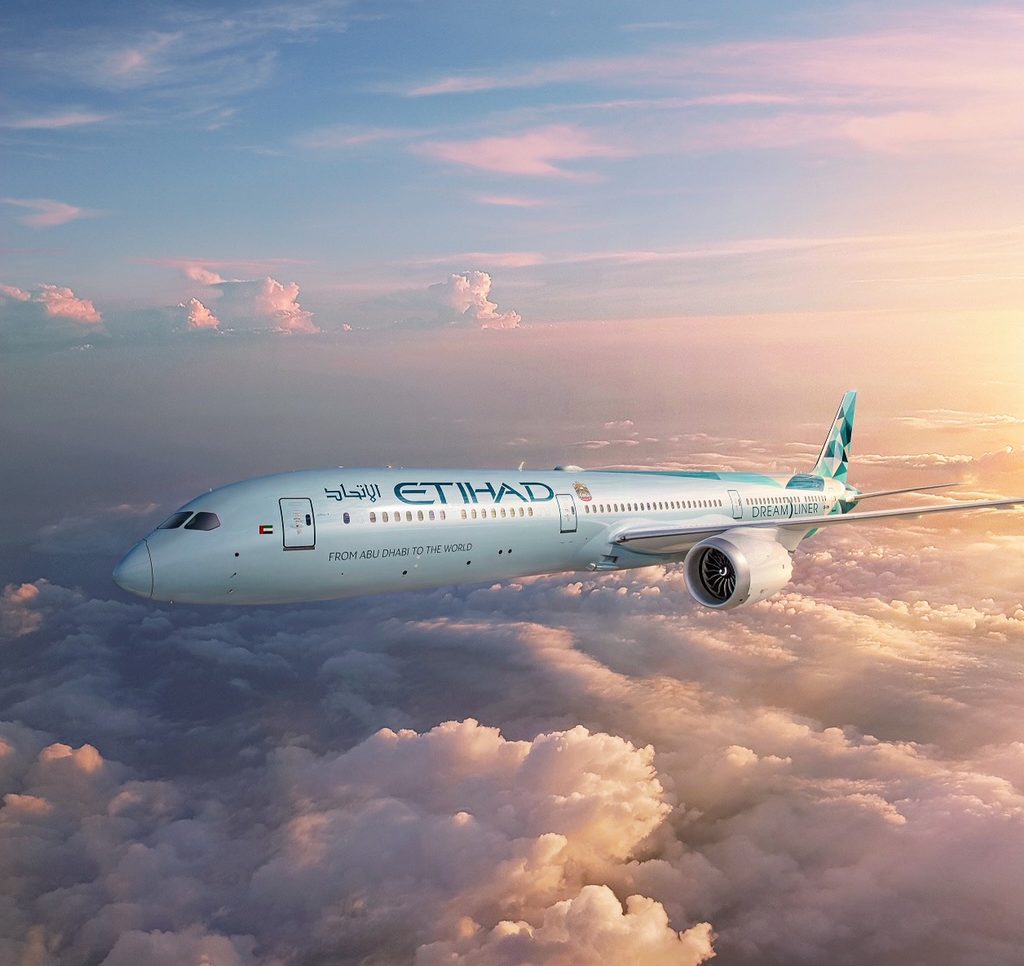Etihad Airways is inviting travelers to book its EY20 Sustainable Flight departing October 23 from London Heathrow to Abu Dhabi, to celebrate the anniversary of the Etihad Greenliner program.
Now in its second year, following its inception in 2019 – the program uses Etihad’s Boeing 787 fleet as a test bed for sustainability improvements in partnership with organizations across the aviation industry.
In October 2019, Etihad and Boeing signed an agreement pledging to work collaboratively on sustainable aviation solutions in both the R&D domain and regular commercial flights.
Since then the two companies have collaborated on areas including inflight product, airspace management, flight deck tools, sustainable fuel, and even brought in expertise from NASA to look at noise levels created by aircraft as part of Boeing’s ecoDemonstrator program.
Etihad Aviation Group Chief Operating Officer Mohammad Al Bulooki said: “Since Etihad and Boeing signed the Greenliner agreement, the two companies have been focused on delivering sustainability solutions for the aviation industry, despite the global pandemic. The Sustainable Flight on October 23 will be a celebration of everything that has been achieved in the past two years and guests will get to see what the future of commercial air travel looks like.
“The fact that sustainability has stayed on the agenda during the pandemic is testament to just how important the topic is to Etihad – the sustainability challenges faced globally will still be around when Covid-19 is no longer an issue.”
With two years of ecoFlights trialing select improvements in sustainability completed as part of the Greenliner Program, Etihad is operating this special flight to bring together the best of the past two years into a single flight.
The flight from Heathrow will be operated with Etihad’s signature Greenliner aircraft, with a livery created to recognise the Greenliner Program and its call to action for the aviation industry.
Based on pre-flight estimations the flight will emit 72 per cent less CO2e in total, and 56 per cent less CO2e per unit of payload than the equivalent flight operated in 2019, thanks to a suite of interventions that will be implemented before, during and even after the flight.


